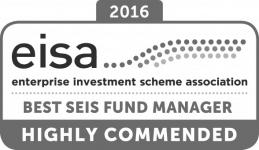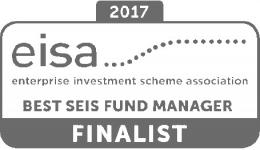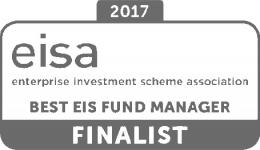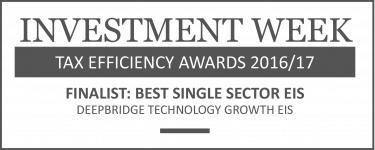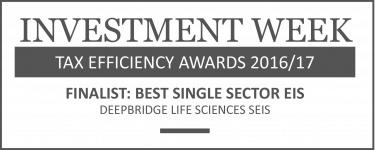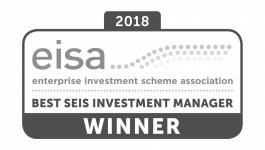What is The Enterprise Investment Scheme (EIS)?
The Enterprise Investment Scheme (EIS) is a government initiative designed to attract investment into smaller UK companies. EIS investments provide enterprise capital to smaller unlisted companies that might otherwise struggle to attract funding. The Government recognises the important role smaller businesses play in a successful economy and offers tax benefits to EIS investors in order to ensure funding is available.
“The purpose of the Enterprise Investment Schemes is to recognise that unquoted trading companies can often face considerable difficulties in realising relatively small amounts of share capital. The new scheme is intended to provide a well-targeted means for some of those problems to be overcome.”Michael Portillo – Chief Secretary to the Treasury, 1993
EIS Statistics
According to the latest figures provided by HM Revenue & Customs (HMRC) in the tax year 2023 to 2024, 3,780 companies raised a total of £1,575 million of funds under the EIS scheme. Around £309 million of investment was raised by 1,010 new EIS companies in 2023 to 2024.
Updated in April 2025, select here for the latest figures.
EIS Tax Reliefs Available
Investors can, depending on their individual circumstances, enjoy some or all of the tax benefits available under the Enterprise Investment Scheme.
The following is a general summary of the main current tax advantages that may be available to an Investor under the Enterprise Investment Scheme in respect of an investment made in an Investee Company during the tax year.
Tax advantages can only be claimed when the investor's funds have been deployed into a company, rather than when an investor makes an initial subscription. There is no limit to the amount of gains that can be deferred for CGT purposes.
The above does not constitute tax advice to any person: it is recommended that investors take independent, tax, legal and financial advice from a qualified professional adviser before considering an investment.
30% Income Tax relief
Investors may claim up to 30% income tax relief, up to a maximum individual investment of £2m per tax year, subject to at least £1m being invested in Knowledge Intensive Companies.
Capital Gains tax Deferral
Capital Gains Tax deferral of unlimited gains on the sale of any assets if an EIS investment made within one year before or three years after the date of the disposal of the assets which give rise to a gain.
No Capital Gains Tax
No Capital Gains Tax on the disposal of shares which have been held for at least three years in EIS Qualifying Companies.
Inheritance Tax Exemption
Inheritance Tax exemption through the availability of Business Relief may be available after EIS qualifying investment has been held for at least two years.
Loss Relief
Loss relief provides total tax relief of up to 61.5% for a 45% tax payer.
Carry-Back Relief
Carry back relief claims may be made for amounts subscribed for shares in EIS qualifying companies, such that an investment is treated for income tax relief purposes as having been made in the previous tax year, subject to maximum investment levels for that tax year.
EIS Tax Reliefs Example
Investee Company x2 in value
Sum invested £50,000
Income Tax Relief £15,000
After holding shares for 3-5 years, you sell them for £100,000, owing nothing in capital gains tax.
Total gain to investor: £65,000 (£50,000 from the sales of shares, plus £15,000 from Income Tax Relief)
Total loss/gain
+£65,000
Investee Company Same Value
Sum invested £50,000
Income Tax Relief £15,000
After holding shares for 3-5 years, you sell them for £50,000, the price you paid.
Total gain to investor: £15,000 (£50,000 from the initial investment is returned, plus £15,000 from the Income Tax Relief)
Total loss/gain
+£15,000
Investee Company Goes out of business
Sum invested £50,000
Income Tax Relief £15,000
After the company goes out of business your shares are worth £0.
The investor receives loss relief from the government, equal to your capital at risk. In this example the £50,000 invested - £15,000 in Income Tax Relief, multiplied by the percentage bracket you belong to (£50,000 - £15,000 = £35,000). At a 45% tax bracket, the loss relief will be £15,750 (45% of £35,000). So for £50,000 invested, your real loss is £35,000 - £15,750 = £19,250
Total loss/gain
-£19,250
Our Products
An opportunity to participate in a range of diverse portfolios, proactively managed by our sector experienced team. Tax advantages are potentially available via the Enterprise Investment Scheme and Seed Enterprise Investment Scheme. Please view our specific product pages for more information. Financial Advice is recommended.
An opportunity for investors to participate in a portfolio of seed-stage technology innovation companies, whilst taking advantage of the potential tax benefits available under the Seed Enterprise Investment Scheme.
An opportunity for investors participate in a portfolio of growth-focused technology companies, whilst taking advantage of the potential tax benefits available under the Enterprise Investment Scheme.
An opportunity for investors to participate in a portfolio of growth-focused healthcare innovation companies, whilst taking advantage of the potential tax benefits available under the Enterprise Investment Scheme.
An asset-backed opportunity for investors to target long-term capital growth by investing in renewable energy generating trading assets.
The Private Investor Network of Deepbridge Capital, enabling experienced investors to define their own portfolio of innovative Life Sciences and Technology companies.
Deepbridge Protect is an IHT mitigation service that seeks to help businesses obtain full IHT relief, through their membership of a trading Partnership participating in a qualifying trade, so as to qualify for Business Relief.





